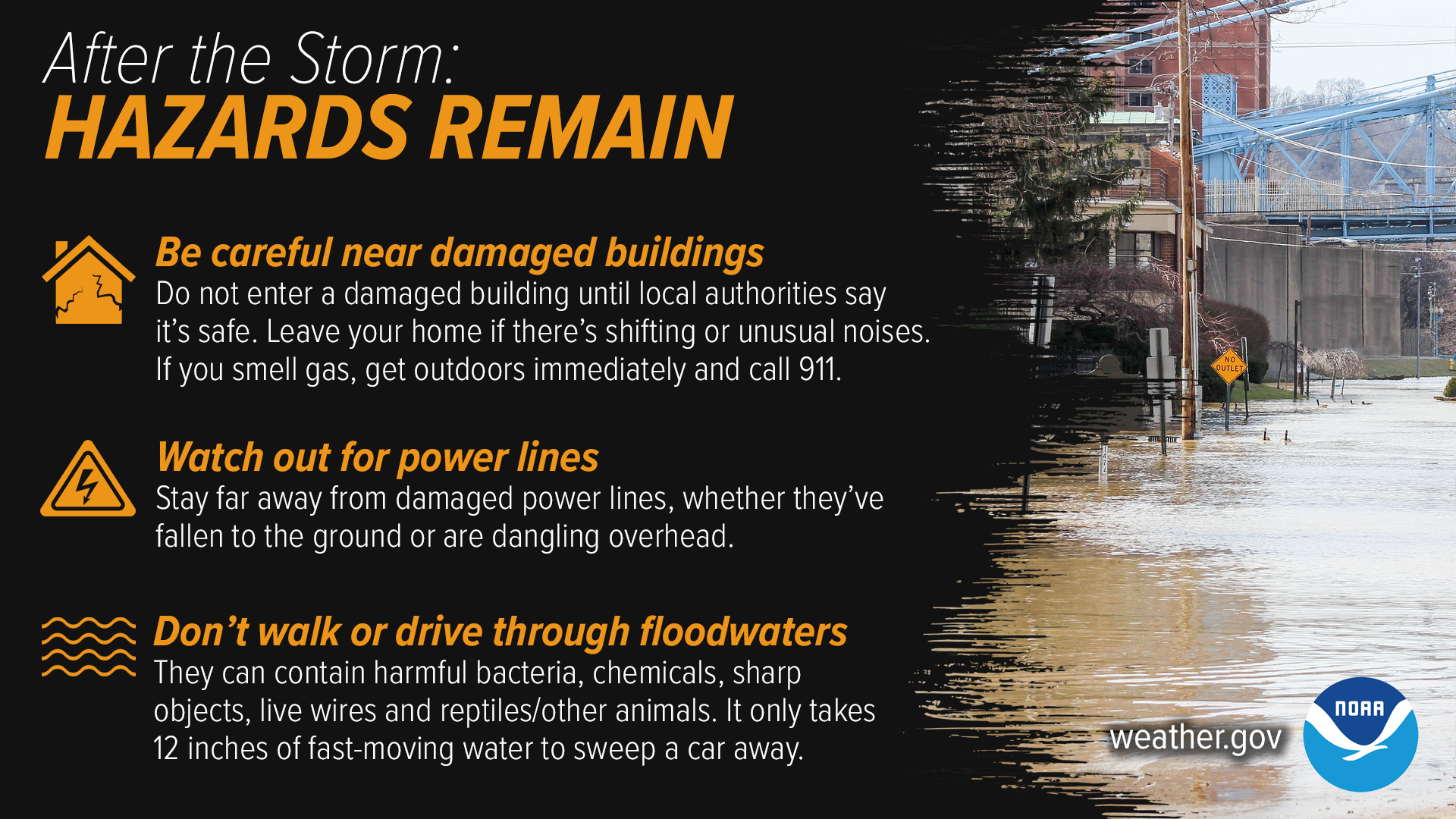Back to Hurricane Preparedness
Please help the National Weather Service spread these important safety messages on social media! Everyone is welcome to use the text and images provided below to help the NWS build a Weather-Ready Nation.
Facebook
Be careful when cleaning up after a hurricane. Cleanup slowly, taking lots of breaks to avoid straining your body. Be very careful with chainsaws and other power tools. Make sure to stay safe in the heat by staying hydrated, taking breaks in the shade or AC. weather.gov/safety/hurricane-after
Twitter
Be careful when cleaning up after a hurricane. Cleanup slowly, taking lots of breaks to avoid straining your body. Be very careful with chainsaws and other power tools. Make sure to stay safe in the heat by staying hydrated, taking breaks in the shade or AC. weather.gov/safety/hurricane-after

Facebook
Hurricane dangers remain ever after the skies turn blue. Watch out for downed power lines and damaged buildings. Avoid floodwaters as they can hide a variety of dangers, and never drive through them, as it doesn’t take much to sweep your car away.
weather.gov/safety/hurricane-after
Twitter
Hurricane dangers remain ever after the skies turn blue. Watch out for downed power lines and damaged buildings. Avoid floodwaters as they can hide a variety of dangers, and never drive through them, as it doesn’t take much to sweep your car away.
weather.gov/safety/hurricane-after

Facebook
Even after the storm passes, power outages have their own set of hazards. Be especially careful with generators — never use them inside or in garages to avoid carbon monoxide poisoning. Use flashlights, not candles, to avoid risk of fire. weather.gov/safety/hurricane-after
Twitter
Even after the storm passes, power outages have their own set of hazards. Be especially careful with generators — never use them inside or in garages to avoid carbon monoxide poisoning. Use flashlights, not candles, to avoid risk of fire. weather.gov/safety/hurricane-after
